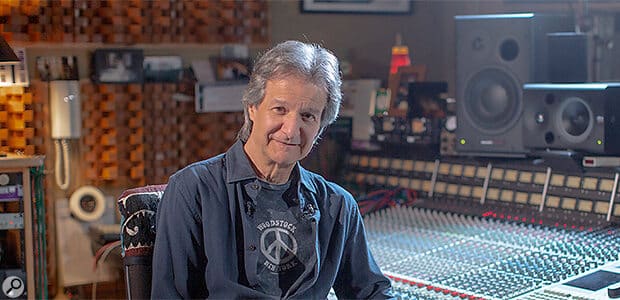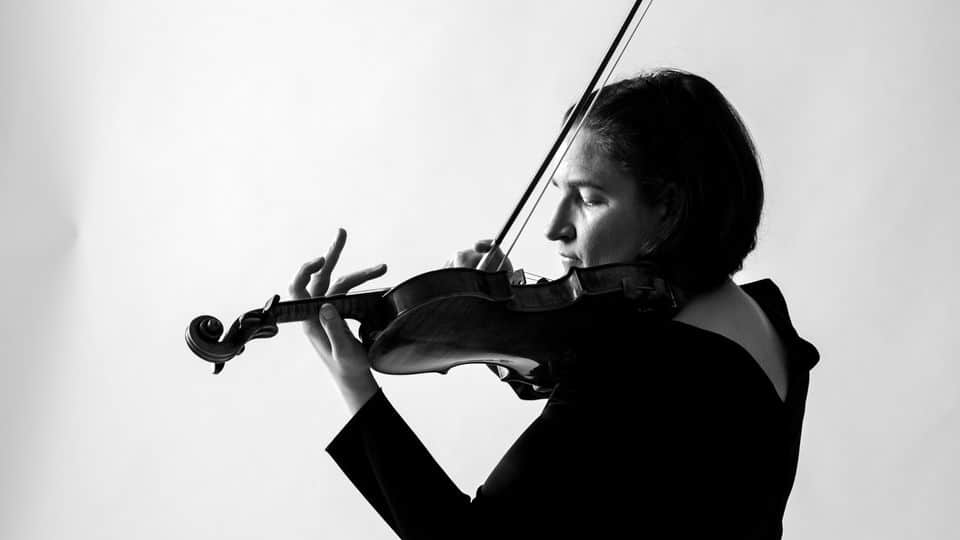When did we forget how to listen?
NewsFrom today’s NY Times report on Dolby Atmos, a rstorative technology heavily backed by Apple Music:
… Veteran engineer and producer Bob Clearmountain, one of the most respected and influential figures in the recording world, was initially dubious of Atmos’s staying power, but he has come to believe in its future.
“Music has become background noise for most people. It’s something in your headphones while you’re out doing other stuff,” he said during a call last month. “When I was a teenager, I used to listen to an album three, four times through just sitting in front of my speakers, entranced.” That way of listening has disappeared, he said, but he’s hopeful that Atmos can bring it back, “if we’re able to get people to understand what it is and hear it the right way.”






If mixed properly and carefully, Atmos sounds great – immersive and impressive In the rush to create Atmos content for the online music platforms, some originally stereo remasters into Atmos are little more than tarting up with a bit of reverb in the surround speakers tho.
Absolutely right!
It is also my experience with Dolby Atmos, especially for opera recordings.
What is Atmos?
“Music has become background noise for most people. It’s something in your headphones while you’re out doing other stuff,”
Spot on. And everything is a “song”.
FYI the Apple Classical app refers to tracks rather than songs.
Too late. Multichannel music can be enthralling if done right. SACD had the promise but too many producers chickened out and basically used only two channels. Were they afraid that too many people didn’t have properly set up Surround Sound systems? That’s probably true. It’s just like what happened with Quadraphonic sound decades ago. It would have been great if music were put on Blu Ray utilizing the multi-channel potential to provide a truly immersive experience. But now, who has the money to go back and re-re-re-record the repertoire again with top-notch orchestras. Add to it that there aren’t that many conductors today who are all that interesting. And…given that most people today listen with ear buds and headphones, the real shame is that binaural recording didn’t take off; done properly that is a really thrilling experience.
“When I was a teenager, I used to listen to an album three, four times through just sitting in front of my speakers, entranced.” That way of listening has disappeared, he said,”
No it hasn’t.
Not entirely, maybe, but I don’t know many people who actually sit down and listen.
Similarly, I see few people reading books on the train – but lots of people staring at their smartphones and flitting from page to page. Do they ever settle down and concentrate on anything for more than two minutes? I see the occasional Kindle, but that’s about it.
The movie industry figured it out some time ago. Insert a gun fight, a car chase or a CGI monster every five minutes and you might just stop your audience reaching for their smartphones.
Agreed but it doesn’t mean there isn’t a “remnant” that does read and does listen and does FOCUS and concentrate………
Indeed not.
True, but things were the same 250 years ago as they are now. Music, even in the opera, was background noise for most
I didn’t see a single use case in that article with any pertinence to classical music. Wonder why?
Atmos is pertinent to classical music because (1) DG is remastering some old recordings using Atmos and releasing them on BluRays and streaming platforms; and (2) Apple Classical is streaming some new in-concert performances that were recorded using Atmos. Now whether these techniques actually improve the output is another issue…
We didn’t.
This doomsaying carries on a tradition that began with the introduction of music reproduction by Edison et al. Before that time, learning to read and perform music was the main way for people (of a certain standard of living: for most of time, a small minority) to experience it. For roughly the past century, music has been background for the vast majority of the populace, but there remains a (sustainable?) minority who listen to live or reproduced music intensely and/or perform it.
Plus ca change…
“That way of listening has disappeared, he said, but he’s hopeful that Atmos can bring it back.” I doubt that. Those listening intensively to music already may appreciate the better audio quality. But those who don’t will not change their behavior of listening to music just because Atmos is available. Whether Atmos will be accepted will mainly depend on price and trust. In recent years we have seen a couple of technical inventions which did not develop really well (for various reasons). I don’t want to invest into a setup which may be in use for a couple of years only. Even more so, if the recording medium can not be played appropriatly on future hardware.
Price and trust and MARKETING. Mass adoption has little to do with technical merit. If it did VHS would never have “beaten” Betamax………..my brother proudly played me some Sibelius on his Spotify-driven phone via Bluetooth to his audio system in his BMW. Trust me it sounded crap compared to the CD player in my car………………
“WHEN DID WE FORGET HOW TO LISTEN?” Hilarious, speak for yourself! There are plenty of us listening to albums of classical, and all other genres of music on well put together sound systems, modestly priced or mega bucks, who don’t need another gimmick punted their way. If you think “Atmos” is going to change the way some kids listen to music you need a long holiday. Next thing Betamax will be making a comeback.
Didn’t we live through this a few decades ago with surround sound? Hearing music as if you were a member of the preforming group is not like we hear music live — as a member of the audience. Atmos is just more of the same ole, trying to get people to replace their collection with another gimmick.
If it’s an excellent recording, eg a great concerto, sonata, symphony, etc I can sit and listen three, four or even five times through, enthralled. Or a CD or DVD, if it’s available to buy (sometimes it’s taken from tv and no DVD/CD is available to buy. You don’t need fancy or expensive technology. Mind you, it’s not really necessary to listen through three times. Just attentive listening once through is sufficient to appreciate it and benefit your mind and mood…..especially if you have deadlines, chores or work waiting!
When I read the thread title, I assumed it meant literally to “listen” by using one’s ears and not specifically to music. I certainly think those who do listen to music have a more acute sense of hearing. But when I joined the BBC as a graduate trainee decades ago, the trainers spent much of the 3 month course training us just actively to listen. The fact is that many people are merely passive listeners. Sounds reach their ears and they are analyzed but only up to a point. Much is missed. Actively listening opens up a new realm and detail of sound. It is something for which I have been profoundly grateful throughout my life.